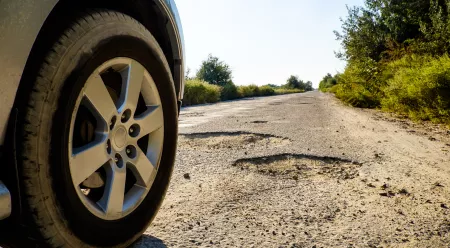How to get your impounded car back from the authorities in Canada
The process for getting your vehicle out of impound varies based on your location and the severity of your offence.
For instance, in British Columbia, you can go directly to the car impound lot to pick up your vehicle and pay the related fees (we go over the related fees below) if it was impounded for three to seven days. Alternatively, drivers need to set up an appointment and visit their local licensing office if their vehicle was impounded for more than seven days.
On the other hand, drivers in Ontario need to wait until they’ve been contacted by the police (for seven-day impound periods) or the Registrar of Motor Vehicles (for 45-day impound periods).
As you can see, the process varies greatly from province to province. So, if you want to familiarize yourself with the process in your area, we suggest visiting your provincial government’s website.
Are there impound fees in Canada?
Yes, as mentioned earlier, you’ll have to pay the fees related to the impending process. Once again, the fees are based on your location and the severity of your conviction.
For example, the impound fees in Ontario include the towing and storage fees for your vehicle. In contrast, drivers in Saskatchewan must cover the vehicle release, storage, and miscellaneous garage fees.
Ontario doesn’t have pre-set fees for impounded vehicles; the driver simply needs to pay the related expenses. On the other hand, the province of Saskatchewan does have pre-set fees, including:
- Release of vehicle — $125
- Storage fees — $17 per day in storage (all compounds)
- Misc. garage fees — $50 (minimum) for winching, $31.33 (plus $0.52 per loaded kilometre) for required flatbeds and dollies, $10 for returning plates, $55 administration fee
Once again, we suggest referencing your provincial government’s website for an in-depth look at the related fees in your province.
Why do cars get impounded in Canada?
There are several reasons why cars get impounded by the police in Canada. Some of the most common examples include:
- Street racing
- Stunt driving
- Exceeding the posted speed limits by 40 km per hour (or more)
- Driving without insurance
- Driving without a valid licence
- Operating a motor vehicle while under the influence of drugs and/or alcohol
- Failing to remain at the scene of a crime and/or accident
- Refusing to take a blood-alcohol or drug test
Each of these offences comes with its own impoundment periods. For example, in Ontario, driving while under the influence of drugs and/or alcohol comes with a seven-day impoundment period, whereas Criminal Code convictions can result in a 45-day impoundment period.
What can you do if you can’t collect your vehicle after the impoundment period?
In some cases, convicted drivers aren’t able to pick up their impounded cars by themselves. If you are unable to pick up your vehicle after the impoundment period has elapsed, you can ask a friend or relative to pick it up for you.
To pick up your vehicle, your friend or relative will need to provide the following information:
- Proof of vehicle ownership
- Proof of vehicle registration
- A piece of (your) personal identification, like a driver’s licence
Your friend or relative will also need to provide proof that you (as the vehicle owner) have given the individual the authority to retrieve your vehicle. Your friend or relative will also need to pay the related fees at the time of the pick up.
What types of vehicles can get impounded in Canada?
Many drivers think that only cars and trucks can get impounded in Canada; however, this is far from the truth.
In reality, the authorities have the power to impound several different types of vehicles in Canada, including the following:
- Passenger vehicles (i.e. cars and trucks)
- Motorcycles
- Buses
- Work-related vehicles
- Rented vehicles
- Leased vehicles
Can you appeal a car impound in Canada?
Yes, you can appeal the impound process if:
- The loss of your vehicle would be an “exceptional hardship”
- Your vehicle was stolen at the time of the impound
- Your driver’s licence was not suspended at the time of the impound
- You were not subject to an ignition interlock condition
- You (as the owner of the impounded vehicle) did your absolute best to ensure that the driver had a valid driver’s licence (for instance, you checked their record on the MTO website). Please note that this rule only applies if your car was impounded after you lent it to another driver.
If your appeal is successful, you’ll get a refund on some or all of the related fees.
Can you get your car out of impound without insurance?
No, you need to have valid auto insurance in order to pick up your impounded car. If you need help comparing competitively-priced auto insurance quotes in Canada, you can contact your Surex insurance advisor today.
Save up to 25% when you bundle your insurance policies with Surex
At Surex, one of our main goals is to help Canadian drivers get the best insurance at the lowest possible rates. We do this by working with a variety of top-rated auto insurance companies in Canada.
If you need help finding and comparing insurance quotes, look no further than your Surex insurance advisor. Your advisor can help you find and save on insurance in less than ten minutes!
Contact us today to receive your quotes in ten minutes (or less) and to learn how we can help you reduce your premium by (up to) 25% when you bundle multiple policies with one of our providers.



